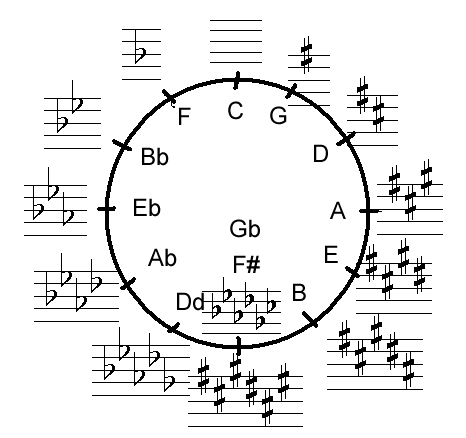Etobicoke 's Best Music School for Piano & Keyboard Lessons, Voice/Singing/Public Speaking Lessons, Guitar Lessons, Bass Lessons, Drum Lessons, Violin and Fiddle, Viola, Cello, Flute, Piccolo, Mandolin, Banjo, Ukulele Lessons, Theory Lessons, Preschool Program, Rock Band S'Cool, Glee Club, Saxophone, Clarinet Lessons
Call to Inquire: 416-614-7529 Toll Free: 1-844-A-Sharp-1
A Sharp School of Music
The Royal York Plaza
1500 Royal York Road
Etobicoke, Ontario M9P 3B6
Tel: 416-614-PLAY (7529) or
416-614-SING (7464)
Toll Free: 1-844-274-2771
Music Theory Lessons for All Ages and Levels
Call now to book a free introductory
Theory Lesson
416-614-7529
Beginner Theory:
Topics include note reading; basic rhythm concepts; interval identification; triads; key signatures; major and minor scales; parallel scales; an introduction to notation and ear-training.
Intermediate Theory:
Topics include triads in major and minor keys; key transposition; seventh chords; modal and pentatonic scales; song form, periodic phrasing and cadences; secondary dominants; rhythm and ear-training.
Advanced Theory:
Topics include four-part voicing; secondary leading-tone chords; inversions; types of melody and techniques of melodic development; non-chord tones; preparation for musical analysis; rhythm and ear-training.
 | ||||||
There are many reasons to study music theory but the top reasons are:
1. You will be a better performer. If you don't know much music theory and you are playing some music and you encounter a passage that has the notes C, E, and G, you would have to mentally process those three notes separately, and this will slow down your ability to perform. If a musician who knows music theory plays the same passage they would instantly recognize that the notes C, E, and G make up a C Major chord and they would play those notes more easily because it took less mental effort to understand the music. Music theory makes learning, practicing and performing much easier.
2. You will have more options as a musician. All musical activities will be much easier. Performing, composing, improvising, arranging, teaching music, or getting a music degree will be much easier if you know music theory.
How to study music theory:
The first thing musicians should learn about music theory is notation: the staff, clefs, note names, rhythms, rests, intervals, meter and time signatures, key signatures, and dynamics.
The next things musicians should learn are scales and chords (harmony).
The next things to learn are melody, phrases, and musical forms.
If you have you learned all of the above then you will have a firm grasp of music theory.
For more information on music theory as it pertains strictly to drums and percussion, please visit our page for
Yes we offer help with Royal Conservatory of Music exams, high school music theory, or study theory just to keep your mind sharp as a tack!
The Circle of 5ths
Theory Lessons Practice Tip of the Week;
April 14, 2025: Practicing at home with your eyes closed allows you to turn off one of your senses, thus, increasing your awareness of touch and sound. This will help with physical memory as well as make you listen more carefully.




